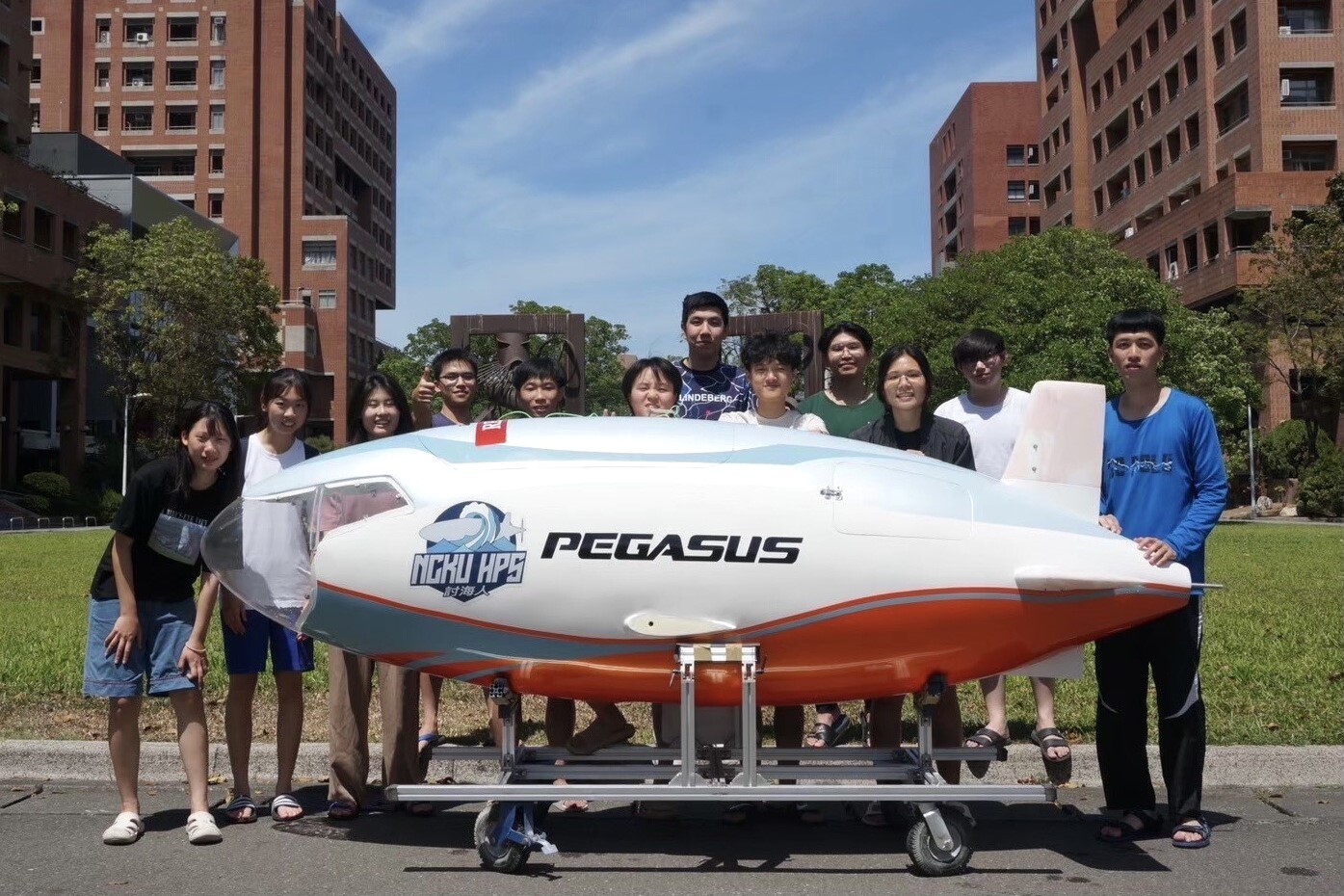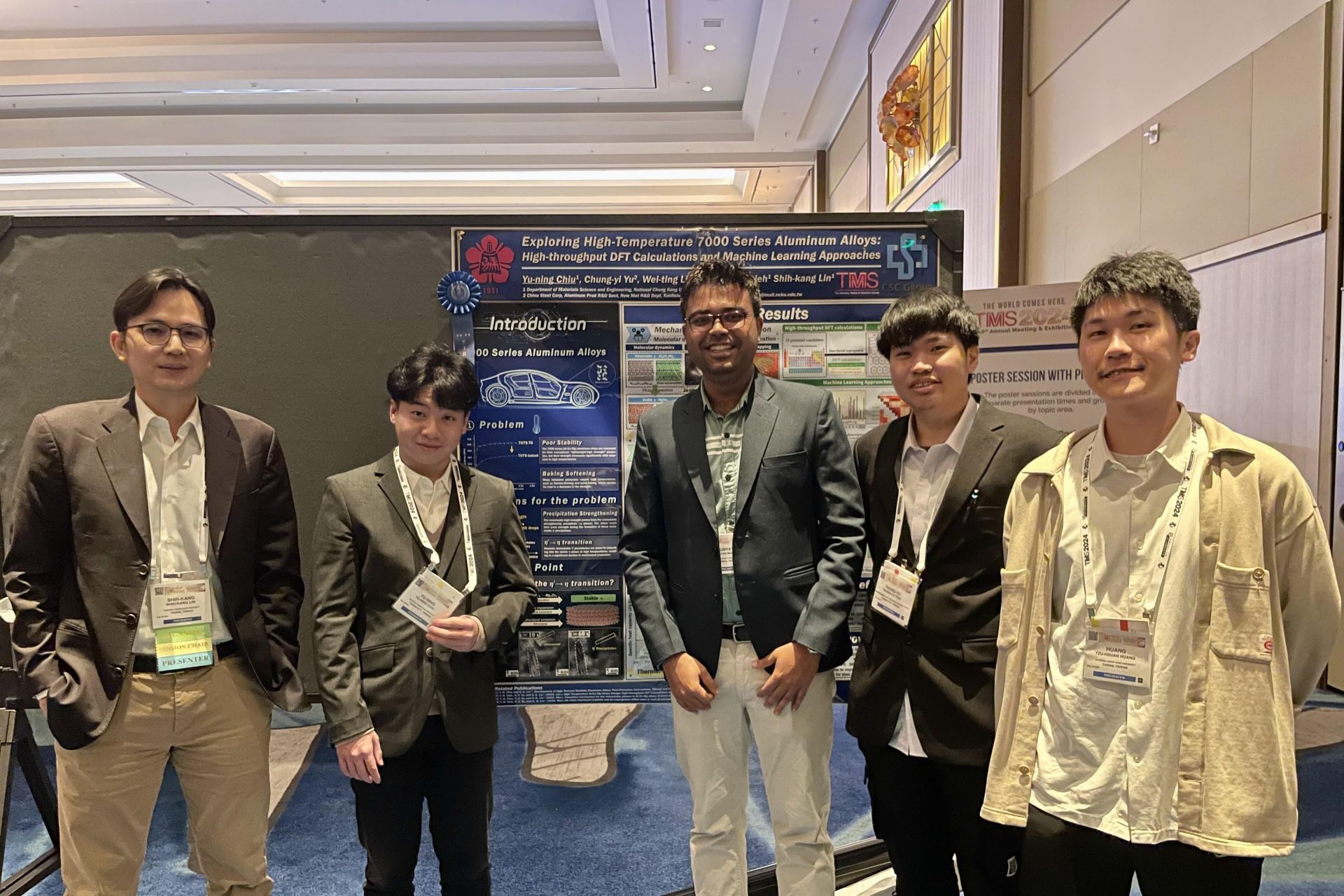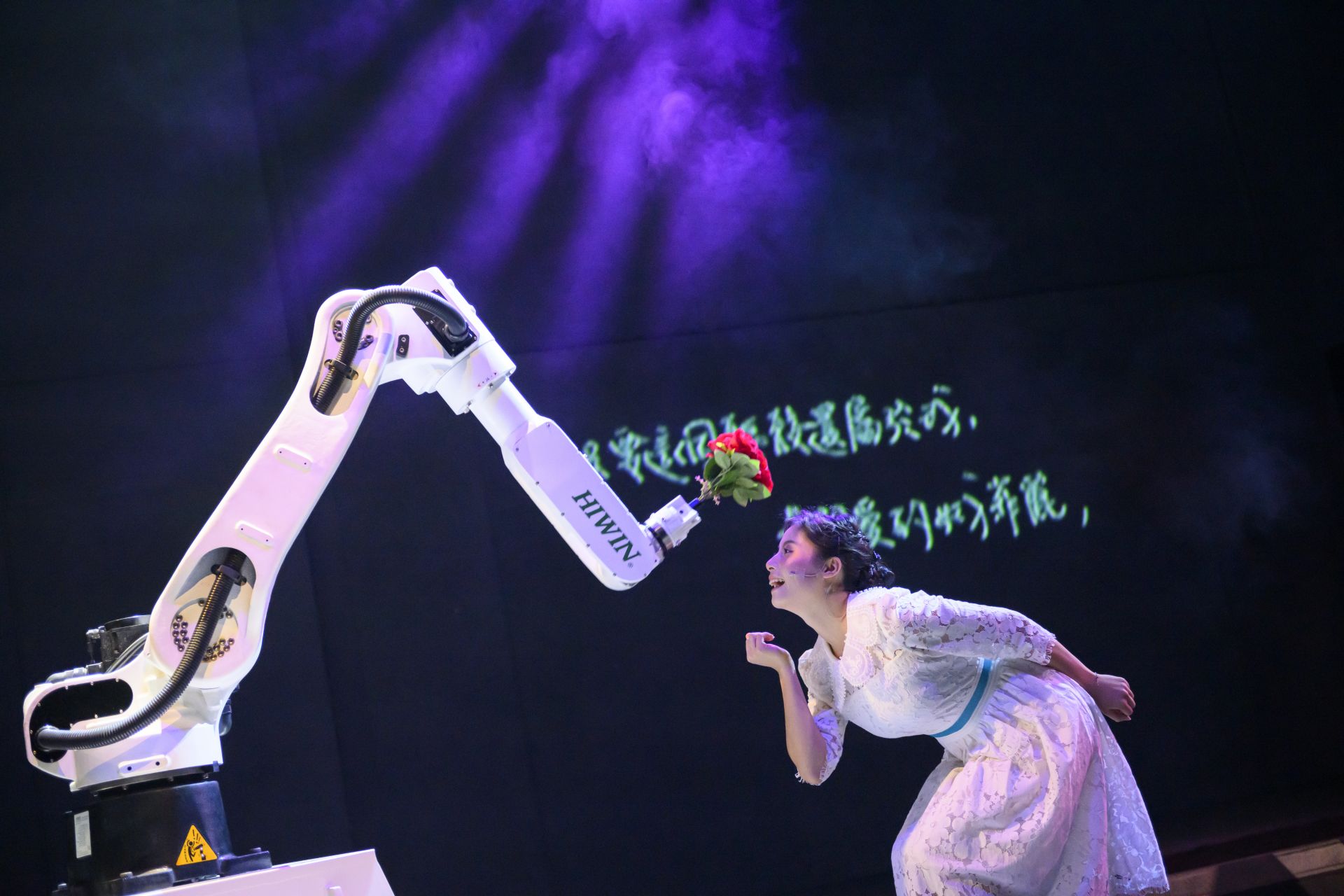SDG9
NCKU and CSU Collaborate to Launch Taiwan’s First "VR Interactive Micro-Nano Technology Training Platform"
In response to the pressing demand for semiconductor industry talent, the Core Facility Center of National Cheng Kung University (NCKU) collaborated with the Department of Electronic Engineering at Cheng Shiu University and digital technology company COOKY'S Digital Park to develop Taiwan’s first "VR Interactive Micro-Nano Technology Training Platform." Designed to gamify semiconductor process training, the platform allows learners to master semiconductor manufacturing operations in a virtual environment without needing to physically enter a cleanroom, effectively saving time and cost.
The "VR Interactive Micro-Nano Technology Training Platform" was unveiled at NCKU on October 22, with a demonstration and experiential session. The event invited participants from NCKU’s College of Science, the Semiconductor Academy, and related science and engineering departments. Distinguished guests included NCKU Executive Vice President Hong-Chen Chen, Cheng Shiu University Vice President Bo-Wen Huang, NCKU Core Facility Center Director Wen-Tai Chiu, NCKU R&D Vice President Chuan-Pu Liu, and Cheng Shiu University Department of Electronic Engineering Director Na-Fu Wang.
At the event, NCKU’s Hong-Chen Chen and Cheng Shiu University’s Bo-Wen Huang signed a collaboration agreement, marking their commitment to developing more platforms. They also expressed hope to enhance the depth and breadth of the platform based on its current foundation, expanding its applications to fields such as optoelectronics, ICT, quantum technology, chemical materials, biomedical science, and nano-tech talent cultivation.
In his speech, Executive Vice President Hong-Chen Chen noted that NCKU, as a leading comprehensive university, and Cheng Shiu University, known for its strong industry connections, collaborated with COOKY'S Digital Park to achieve this innovative platform. He highlighted the advantages of virtual reality in education and training, particularly for high-risk, high-cost, high-technical, and high-threshold fields, emphasizing its potential to reduce costs and eliminate real-world limitations. Chen expressed his hope that the platform could disseminate scientific knowledge to high school students and the general public in an engaging, easy-to-understand manner.
Vice President Bo-Wen Huang thanked NCKU for its extensive support in the project. He described the platform as an immersive virtual reality educational tool that uses engaging, scenario-based methods to enhance learning for students and those interested in entering the semiconductor industry. Huang expressed his desire for continued collaboration between NCKU and Cheng Shiu University.
Liu Shu-Fen, General Manager of COOKY'S Digital Park, highlighted the importance of "fun" in attracting users to the platform. She expressed gratitude to the NCKU and Cheng Shiu teams for their support during the past year of collaboration. Jokingly, she remarked that completing the project felt like earning another Ph.D.
After the signing ceremony, guests, including Hong-Chen Chen and Bo-Wen Huang, eagerly donned VR devices to experience the platform firsthand. Chen praised the realistic environment and facilities, reiterating the platform’s significant benefits for training in high-cost and high-threshold fields.
Participants from Cheng Shiu University, including senior students from the Department of Electronic Engineering, expressed how the platform greatly aids in understanding semiconductor equipment functions and operations. They noted that the virtual environment closely resembles a real cleanroom.
An employee at the NCKU Core Facility Center who had used the platform remarked on its effectiveness. The platform features a simulated space with virtual assistants that guide users, enabling them to quickly learn equipment operation and functions. However, entering the test mode proved to be quite challenging.
NCKU’s Core Facility Center, equipped with a rare, complete cleanroom and advanced semiconductor manufacturing equipment, played a critical role in the platform’s development. Engineers from the center contributed significantly to modeling equipment and spaces, provided detailed explanations of equipment principles, and demonstrated operations. Through gamified learning, the platform aims to help learners rapidly acquire semiconductor equipment operation skills.
Key Features of the "VR Interactive Micro-Nano Technology Training Platform": 1. Realistic Semiconductor Process Simulation: Incorporates coating, exposure, and etching technologies, allowing learners to master operations in a virtual environment without entering a cleanroom. 2. Simultaneous Multi-User Learning: Enables multiple users to operate and learn without waiting for equipment availability. 3. Gamified Experience: Features customizable process learning menus and an engaging interface to deepen equipment understanding. 4. First-of-its-Kind in Taiwan: Introduces an unprecedented high-tech teaching mode for semiconductors. 5. Cost and Time Efficiency: Reduces the need for physical cleanroom entry and shortens training time and associated costs.
The "VR Interactive Micro-Nano Technology Training Platform" was unveiled at NCKU on October 22, with a demonstration and experiential session. The event invited participants from NCKU’s College of Science, the Semiconductor Academy, and related science and engineering departments. Distinguished guests included NCKU Executive Vice President Hong-Chen Chen, Cheng Shiu University Vice President Bo-Wen Huang, NCKU Core Facility Center Director Wen-Tai Chiu, NCKU R&D Vice President Chuan-Pu Liu, and Cheng Shiu University Department of Electronic Engineering Director Na-Fu Wang.
At the event, NCKU’s Hong-Chen Chen and Cheng Shiu University’s Bo-Wen Huang signed a collaboration agreement, marking their commitment to developing more platforms. They also expressed hope to enhance the depth and breadth of the platform based on its current foundation, expanding its applications to fields such as optoelectronics, ICT, quantum technology, chemical materials, biomedical science, and nano-tech talent cultivation.
In his speech, Executive Vice President Hong-Chen Chen noted that NCKU, as a leading comprehensive university, and Cheng Shiu University, known for its strong industry connections, collaborated with COOKY'S Digital Park to achieve this innovative platform. He highlighted the advantages of virtual reality in education and training, particularly for high-risk, high-cost, high-technical, and high-threshold fields, emphasizing its potential to reduce costs and eliminate real-world limitations. Chen expressed his hope that the platform could disseminate scientific knowledge to high school students and the general public in an engaging, easy-to-understand manner.
Vice President Bo-Wen Huang thanked NCKU for its extensive support in the project. He described the platform as an immersive virtual reality educational tool that uses engaging, scenario-based methods to enhance learning for students and those interested in entering the semiconductor industry. Huang expressed his desire for continued collaboration between NCKU and Cheng Shiu University.
Liu Shu-Fen, General Manager of COOKY'S Digital Park, highlighted the importance of "fun" in attracting users to the platform. She expressed gratitude to the NCKU and Cheng Shiu teams for their support during the past year of collaboration. Jokingly, she remarked that completing the project felt like earning another Ph.D.
After the signing ceremony, guests, including Hong-Chen Chen and Bo-Wen Huang, eagerly donned VR devices to experience the platform firsthand. Chen praised the realistic environment and facilities, reiterating the platform’s significant benefits for training in high-cost and high-threshold fields.
Participants from Cheng Shiu University, including senior students from the Department of Electronic Engineering, expressed how the platform greatly aids in understanding semiconductor equipment functions and operations. They noted that the virtual environment closely resembles a real cleanroom.
An employee at the NCKU Core Facility Center who had used the platform remarked on its effectiveness. The platform features a simulated space with virtual assistants that guide users, enabling them to quickly learn equipment operation and functions. However, entering the test mode proved to be quite challenging.
NCKU’s Core Facility Center, equipped with a rare, complete cleanroom and advanced semiconductor manufacturing equipment, played a critical role in the platform’s development. Engineers from the center contributed significantly to modeling equipment and spaces, provided detailed explanations of equipment principles, and demonstrated operations. Through gamified learning, the platform aims to help learners rapidly acquire semiconductor equipment operation skills.
Key Features of the "VR Interactive Micro-Nano Technology Training Platform": 1. Realistic Semiconductor Process Simulation: Incorporates coating, exposure, and etching technologies, allowing learners to master operations in a virtual environment without entering a cleanroom. 2. Simultaneous Multi-User Learning: Enables multiple users to operate and learn without waiting for equipment availability. 3. Gamified Experience: Features customizable process learning menus and an engaging interface to deepen equipment understanding. 4. First-of-its-Kind in Taiwan: Introduces an unprecedented high-tech teaching mode for semiconductors. 5. Cost and Time Efficiency: Reduces the need for physical cleanroom entry and shortens training time and associated costs.
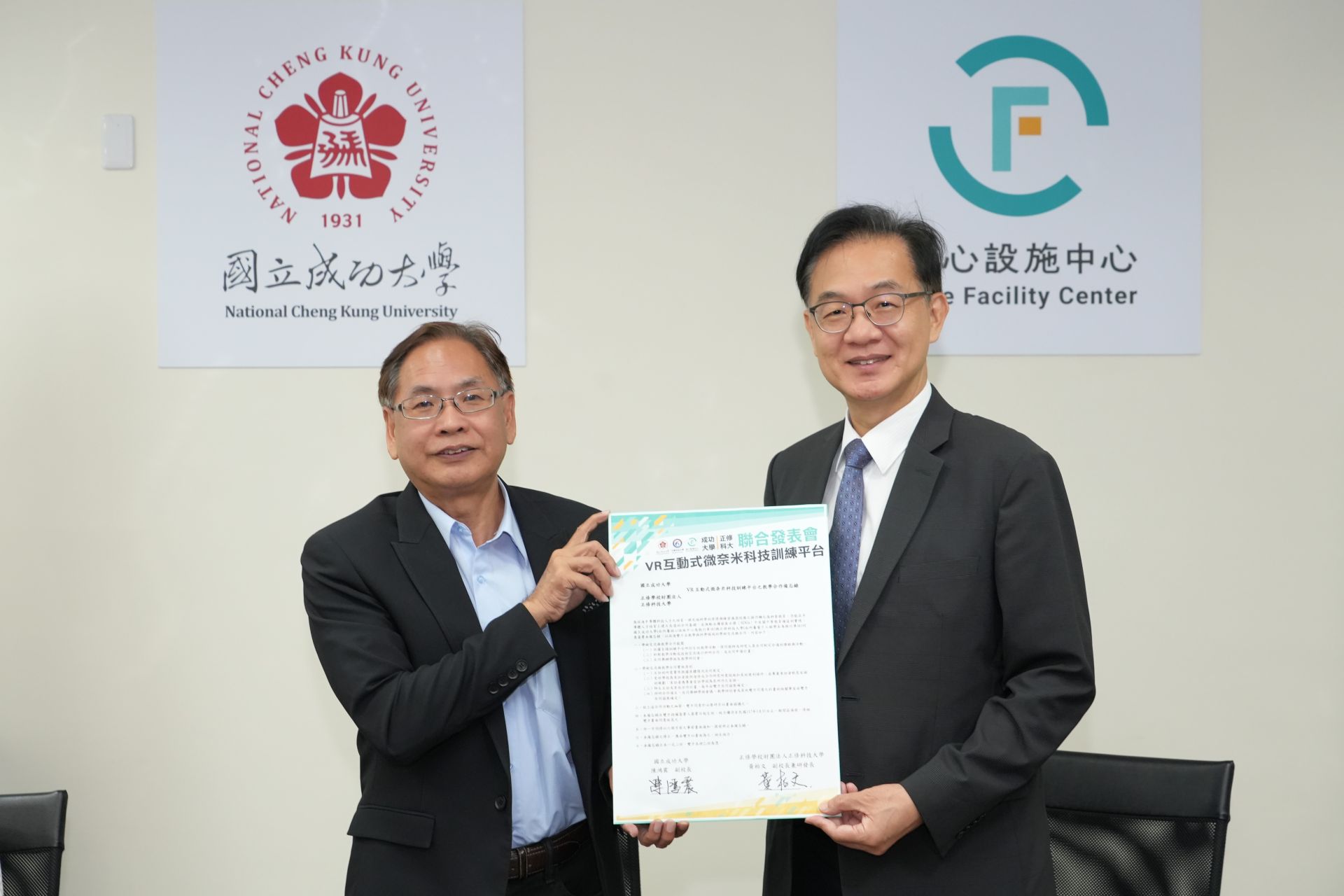
Executive Vice President Hong-Chen Chen (right) of NCKU and Vice President Bo-Wen Huang (left) of Cheng Shiu University signing the collaboration agreement.
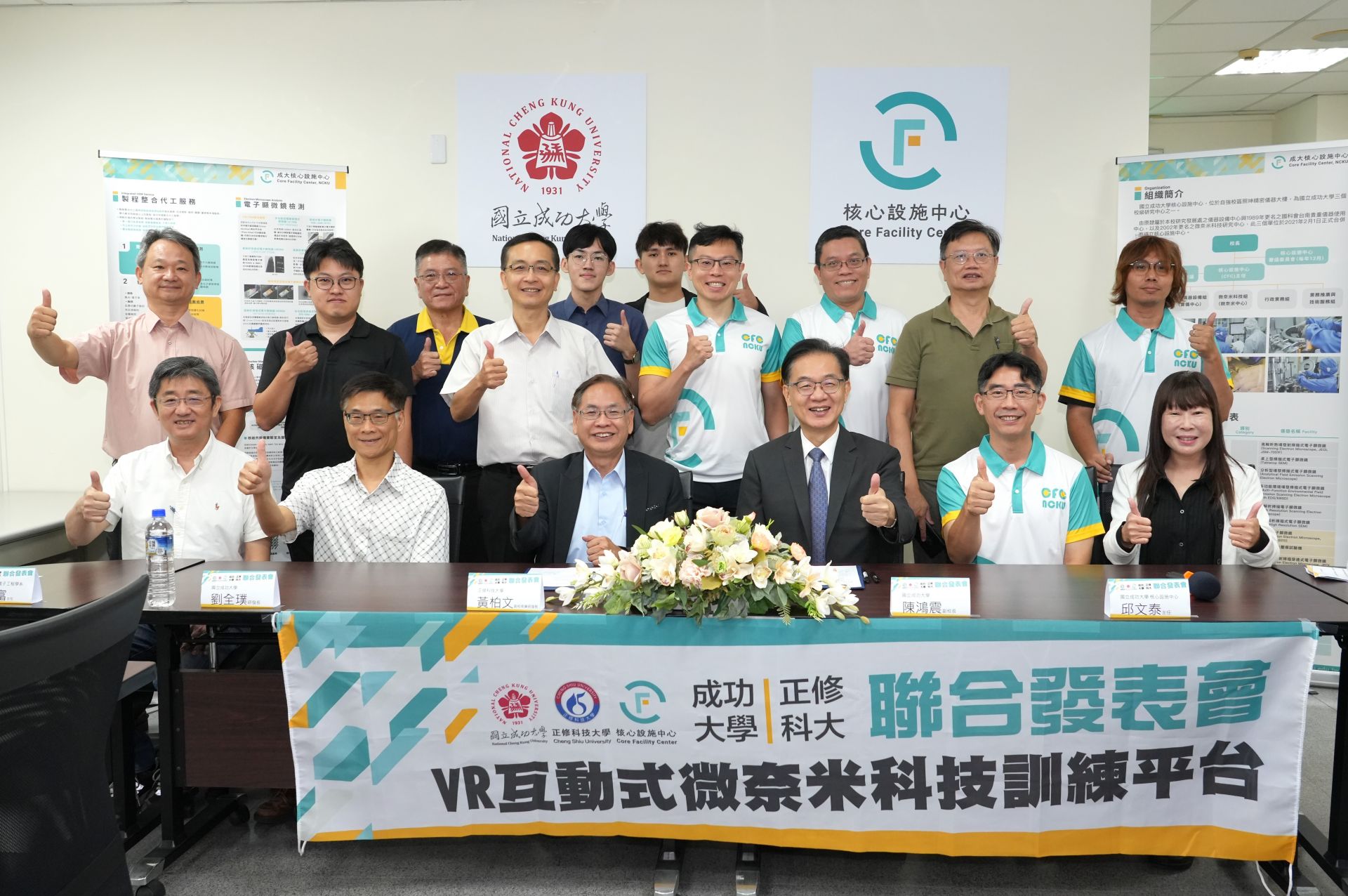
Group photo of attendees after the signing ceremony.
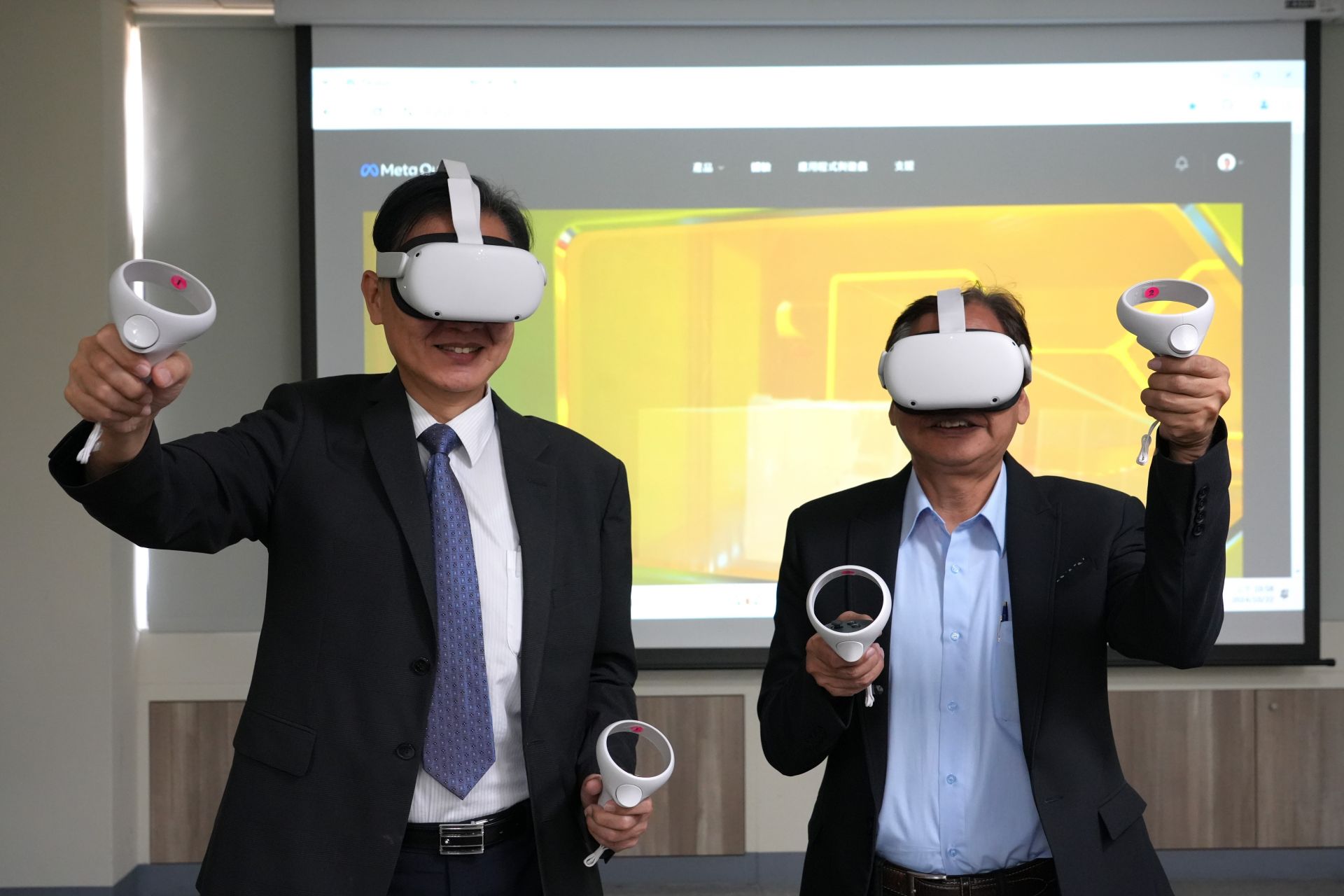
Executive Vice President Hong-Chen Chen (left) and Vice President Bo-Wen Huang (right) experiencing the "VR Interactive Micro-Nano Technology Training Platform."




